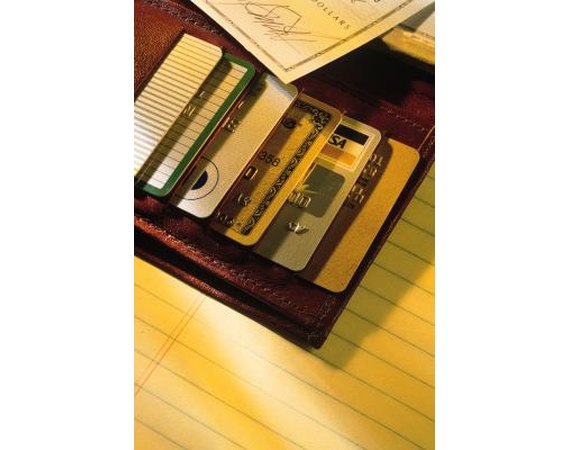Credit scores are determined using a formula devised by the Fair Isaac Company, and the credit score used by most lenders is the FICO score. Information from your credit report is gathered and used to come up with the credit score. Credit scores play an important role in your financial future.
Credit Scores
Credit scores are used by lenders when evaluating you for potential credit. The credit score reflects how you have handled your credit accounts in the past. Credit scores comprise five factors: payment history, credit utilization, age of credit history, inquiries and new accounts. Two of these factors account for over 65 percent of your credit score. Your past payment history accounts for 35 percent of your credit score, but it takes time to change your past and improve your credit score. Your credit utilization accounts for 30 percent of your credit score, and working on this area of your credit score can cause an almost immediate rise in your credit score.
Importance of Credit Score
Credit scores do not only impact your ability to get future credit but also affect aspects of your life not related to loans or finances. Employers are using credit scores to evaluate employees as part of the job selection process; therefore, having a low credit score could cost you a potential job. Insurance companies often use credit scores to determine the premium you pay; a poor credit score can result in you paying a higher premium for the same insurance a person with good credit pays. In terms of financing or requesting a loan, a low credit score will often result in a higher interest rate, which then results in a higher monthly payment.
Raising Credit Scores
The quickest and most effective way to raise your credit score is to lower your credit utilization. Credit utilization refers to the amount of credit you have available and the amount of credit you are using. Your target should be to have all credit balances under 20 percent of the credit limit. For example, if you have $10,000 in credit card limits and your balances on the cards total $8,000, you are using 80 percent of your available credit, and your credit score is lowered due to this fact. The higher you charge up your credit cards, the lenders see you as a credit risk. In the example, lowering the balances until you owe less than $2,000 will raise your credit score as soon as the lender reports the new balance. Even if you cannot lower your credit utilization to under 20 percent, the lower you can get your balances, the more your credit score will improve -- 40 percent credit utilization is much better than 60 percent and will improve your credit score.
Other Factors in Credit Scoring
Additional factors that will help improve your credit score are paying on time and limiting new credit. Paying on time accounts for 35 percent of your credit score. The most damage to your score occurs in the first 24 months following a late payment. Pay every bill on time, for 24 months, and you will see your credit score begin to recover.
















